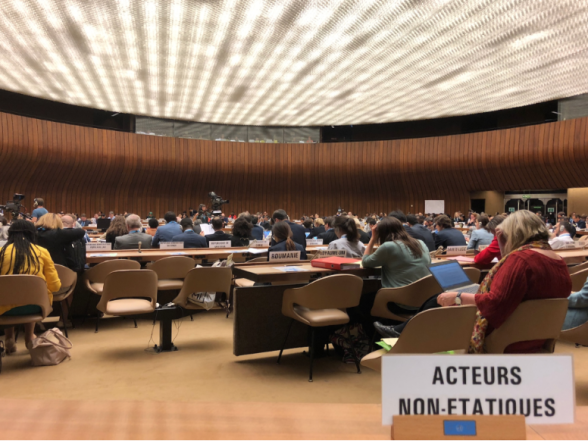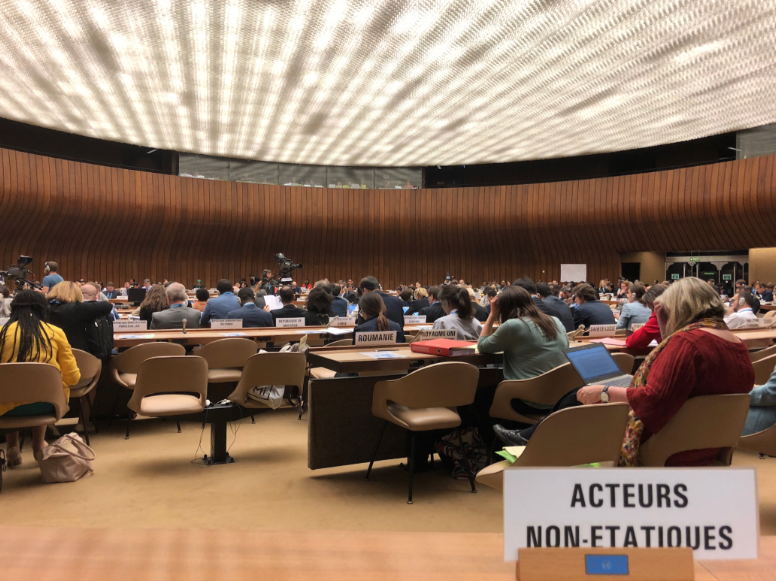This blog outlines the presentation being given in Committee Room A at th Palais de Nations on Day 4 of the Seventy First World Health Assembly in Geneva. Many members waited and watched patiently to watch it yesterday, which tehnically is a statement to support the Worldwide Hospice Palliative Care Alliance, but as the agenda is very 'fluid' here, a bit like Parliamentary sittings, it was moved to today.
DAI is working with this organisation, to ensure Palliative Care is provided for all people ith dementia, even though currently, globally, only 10% of ALL people requiring palliative care receive it. I am a member of their direct stakeholder committee, working on a project around strengthening the voice of direct stakeholders. It is wonderful peole with dementia are now being invited to be involved in working on so many different topics, all of which effect them directly.
When my father in law was dying in the later stages of Lewy Body Dementia, in a Long Term Care facility, he was denied palliative care, due to his age, but more specifically, due to having dementia. It was not only a breach of his human right to end of life care, it was devastating for those of us how loved him, watching on from the sidelines. It was once even taught, and believed that people with dementia did not feel pain!! So, presenting on Palliative care for all, is important.
My speech notes, prepared primarily by the Executive Director of
Worldwide Hospice Palliative Care Alliance, Stephen Connor, for the Session on the Non Communicable Diseases and High Level Meeting in New York is outlined below. However, we have just been advised we may not come up on the Agenda until late this evening, if at all!
Dear Chair:
None of us in this room want to suffer* ourselves or see our friends and family suffer because of a lack of palliative care for conditions such as cancer, dementia, COPD and heart disease when cure is not possible. Palliative care is a fundamental part of Universal Health Coverage and the continuum of care for people living with non-communicable diseases. Avoidable suffering of people with non-communicable diseases can be addressed through an extremely cost-effective package of palliative care as outlined in the Lancet Commission on Palliative Care and Pain Relief. This package costs as a little as $3 per capita in low and middle income countries. The UN General Assembly on Non-Communicable Diseases is an opportunity to revisit how well we have done in building access to these essential, and often neglected, services as outlined in the Global Action Plan and the monitoring and evaluation framework. In addition, we should look forward to ensuring an essential package of palliative care to reduce suffering, improve outcomes and increase health system efficiencies. Palliative care is a universal issue that affects all of us at some point. The availability of palliative care could be an indicator for the strength of a health system - which seeks not only to reduce the presence of disease but also in line with the principles of WHO’s constitution - to ensure physical, mental and social well-being - even when conditions cannot be cured. Take if from someone living with dementia, let’s make the cost effective essential package of palliative care available to those who need it.
Thank you,
Kate Swaffer
On Behalf of Worldwide Hospice Palliative Care Alliance
Footnote: *The use of the word suffer or suffering used in this speech, is not referring to the lied experince of dementia, but rather, to the suffering caused by the lack of access to palliative care.

